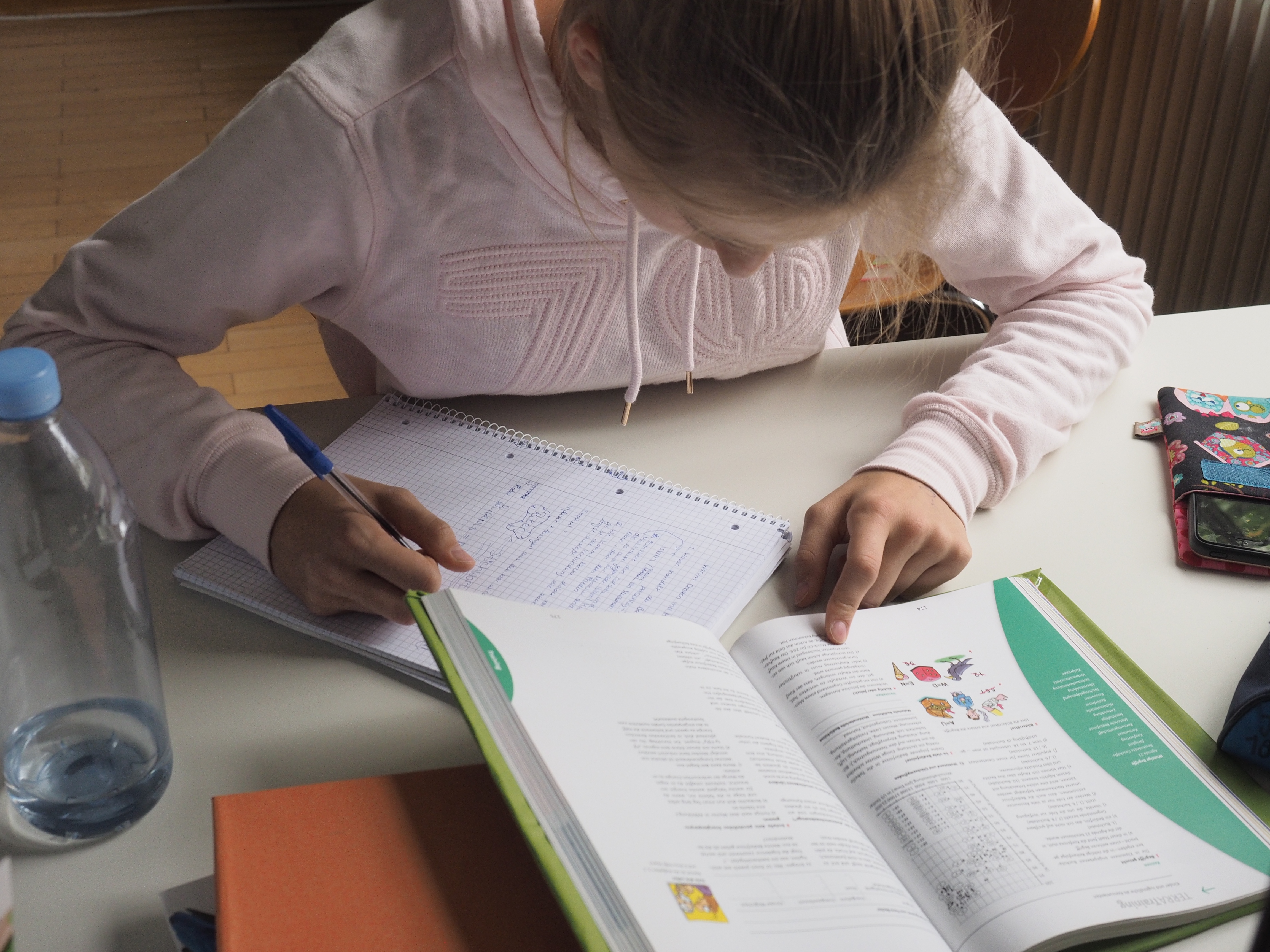Press Releases Archive
04.10.2017
Doing homework is associated with change in students’ personality
Students who invest more effort in their homework show changes in conscientiousness, University of Tübingen researchers find
Homework may have a positive influence on students’ conscientiousness. As results of a study conducted by University of Tübingen researchers suggest, students who do more homework than their peers show positive changes in conscientiousness. Thus, schools may be doing more than contributing to students’ learning, but they may also be effecting changes of their students’ personality. The study results were published in the Journal of Research in Personality.
Previous research finds that homework effort is consistently related to student achievement. Also, conscientiousness appears to be the most important personality trait for predicting homework effort. With this connection in mind, proponents of homework have argued that the effort which students invest in their homework may have positive effects on students by influencing their conscientiousness. In their study, the Tübingen scientists investigated whether this claim holds true.
They analyzed data from a longitudinal study with 2,760 students from two different school tracks in the German states of Baden-Württemberg and Saxony. Students were initially assessed right after their transition from primary to secondary school in Grade 5. For the next three years, students were assessed annually between six and eight weeks after the start of each school year. They answered questions such as how many of their last 10 homework assignments in mathematics and German they did as well as possible. Also, they were asked how conscientious they thought they were including whether they would describe themselves as tidy or rather as messy and negligent. In addition to students’ self-reports, parents were asked to assess their children’s conscientiousness as well.
Results show that those students who invested a lot of effort in their homework between Grades 5 and 8 also profited in terms of their conscientiousness. Previous research has shown that conscientiousness tends to undergo a temporary dip in late childhood and early adolescence. As the results found by the Tübingen scientists suggest, doing your homework thoroughly and meticulously appeared to counterbalance this dip. Indeed, researchers found a substantial decrease in conscientiousness for students who reported that they had not made an effort with their homework. Those results were also backed by parents, whose reports matched those of their children.
“Our results show that homework is not only relevant for school performance, but also for personality development – provided that students put a lot of effort into their assignments,” says Richard Göllner, first author of the study. “The question whether doing your homework can also influence the development of conscientiousness has been mostly neglected in previous discussions of the role of homework,” criticizes Ulrich Trautwein, director of the Hector Research Institute of Education Sci-ences and Psychology. “We need to define more precisely what expectations we have of the poten-tial of homework and how those expectations can be fulfilled.”
Original publication:
Göllner, R., Damian, R. I., Rose, N., Spengler, M., Trautwein, U., Nagengast, B., & Roberts, B. W. (2017). Is doing your homework associated with becoming more conscientious? Journal of Re-search in Personality, 71, 1-12. doi:10.1016/j.jrp.2017.08.007
Contact:
University of Tübingen
Hector Research Institute of Education Sciences and Psychology
www.hib.uni-tuebingen.de
Dr. Richard Göllner
Tel. +49 7071 29-73913
richard.goellnerspam prevention@uni-tuebingen.de
Prof. Dr. Ulrich Trautwein
Tel. +49 7071 29-73931
ulrich.trautweinspam prevention@uni-tuebingen.de

